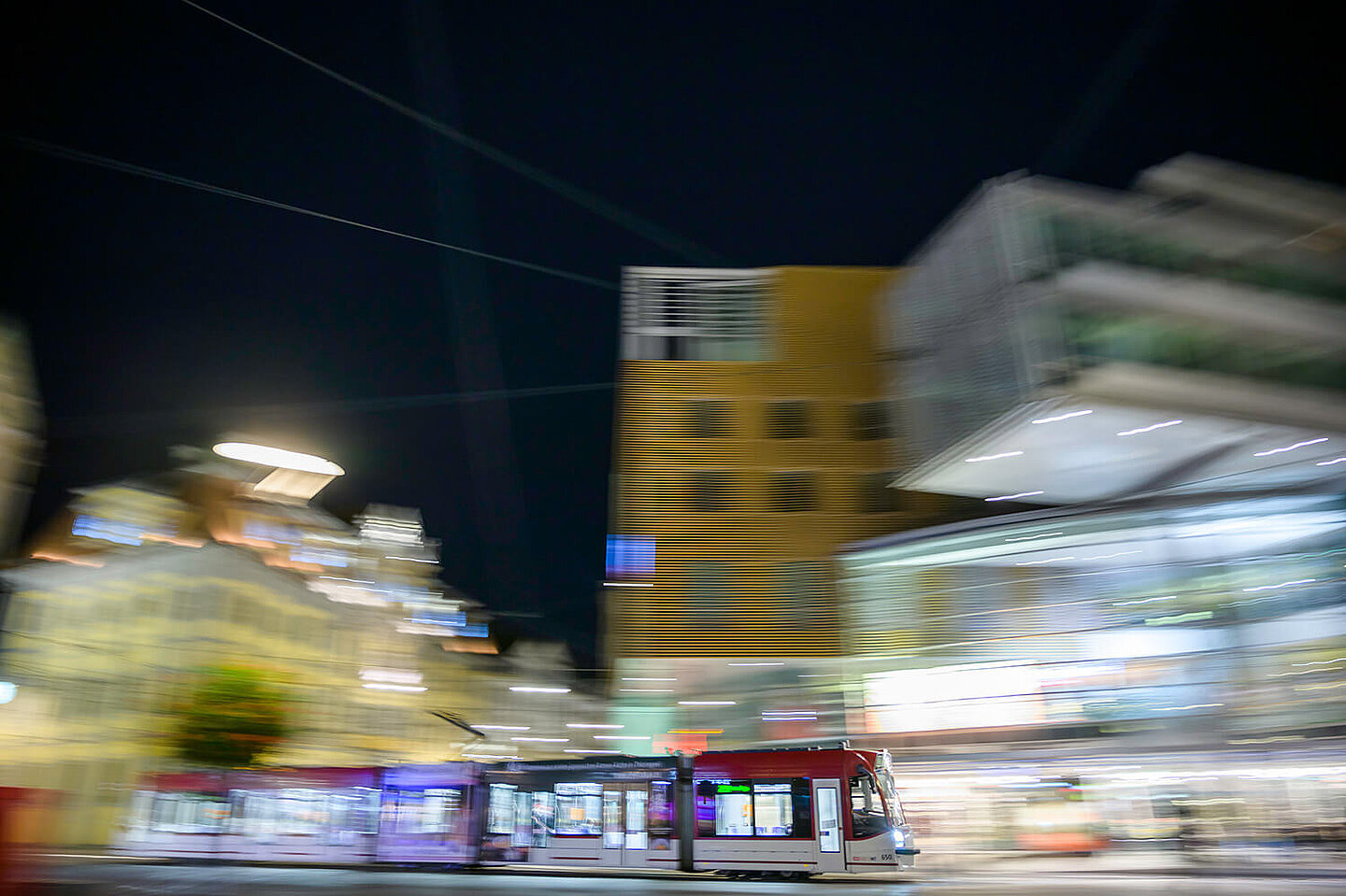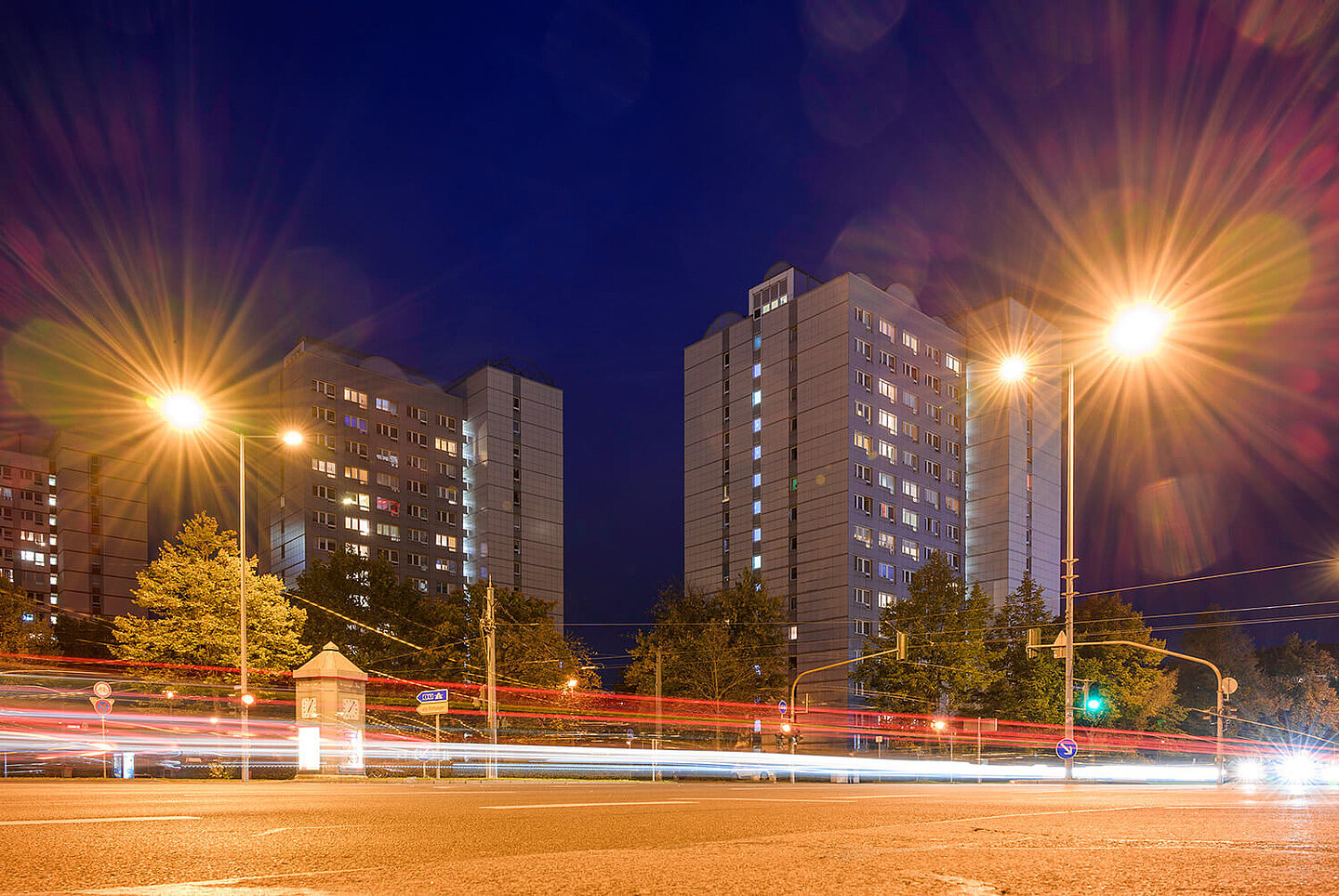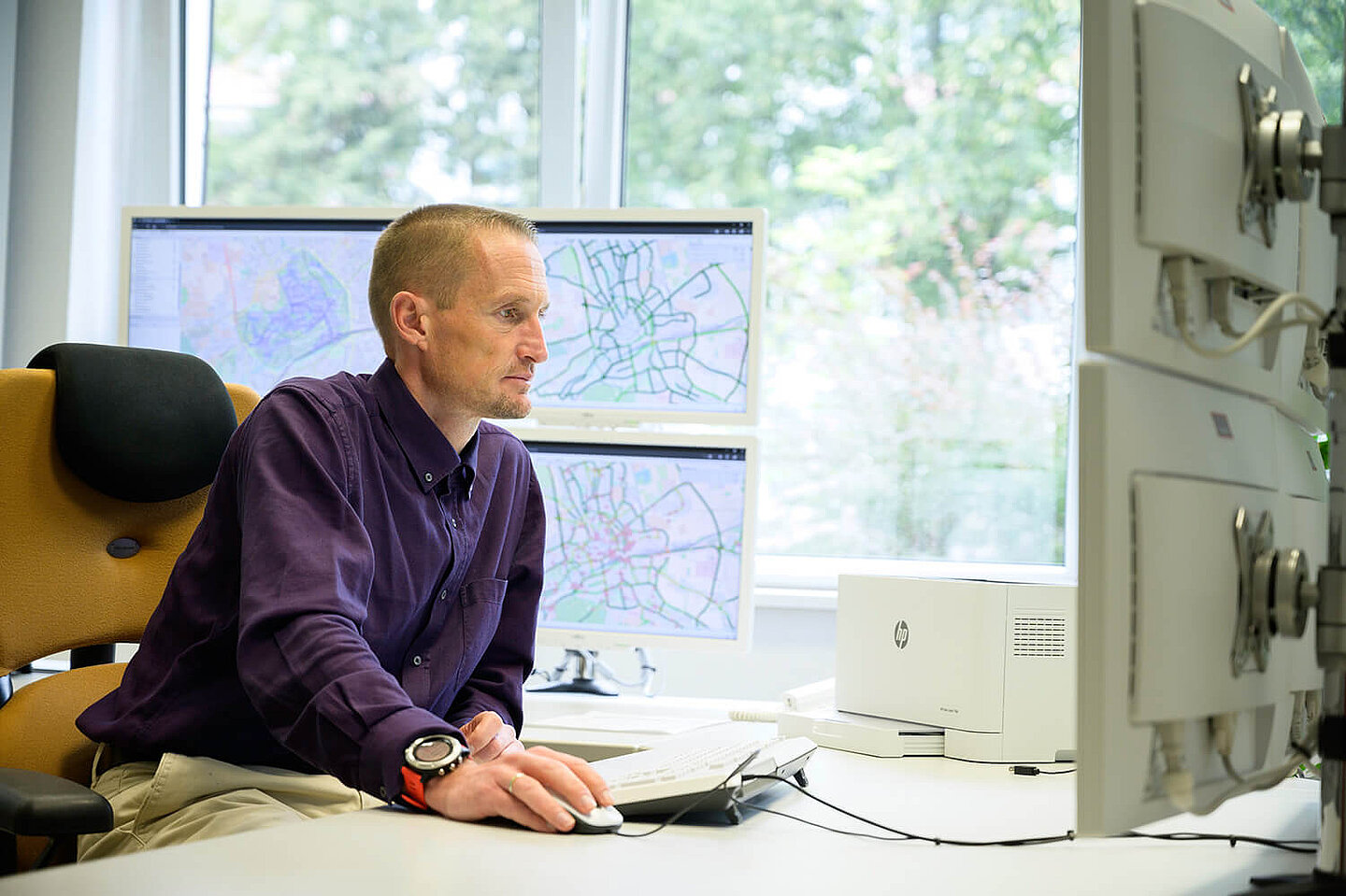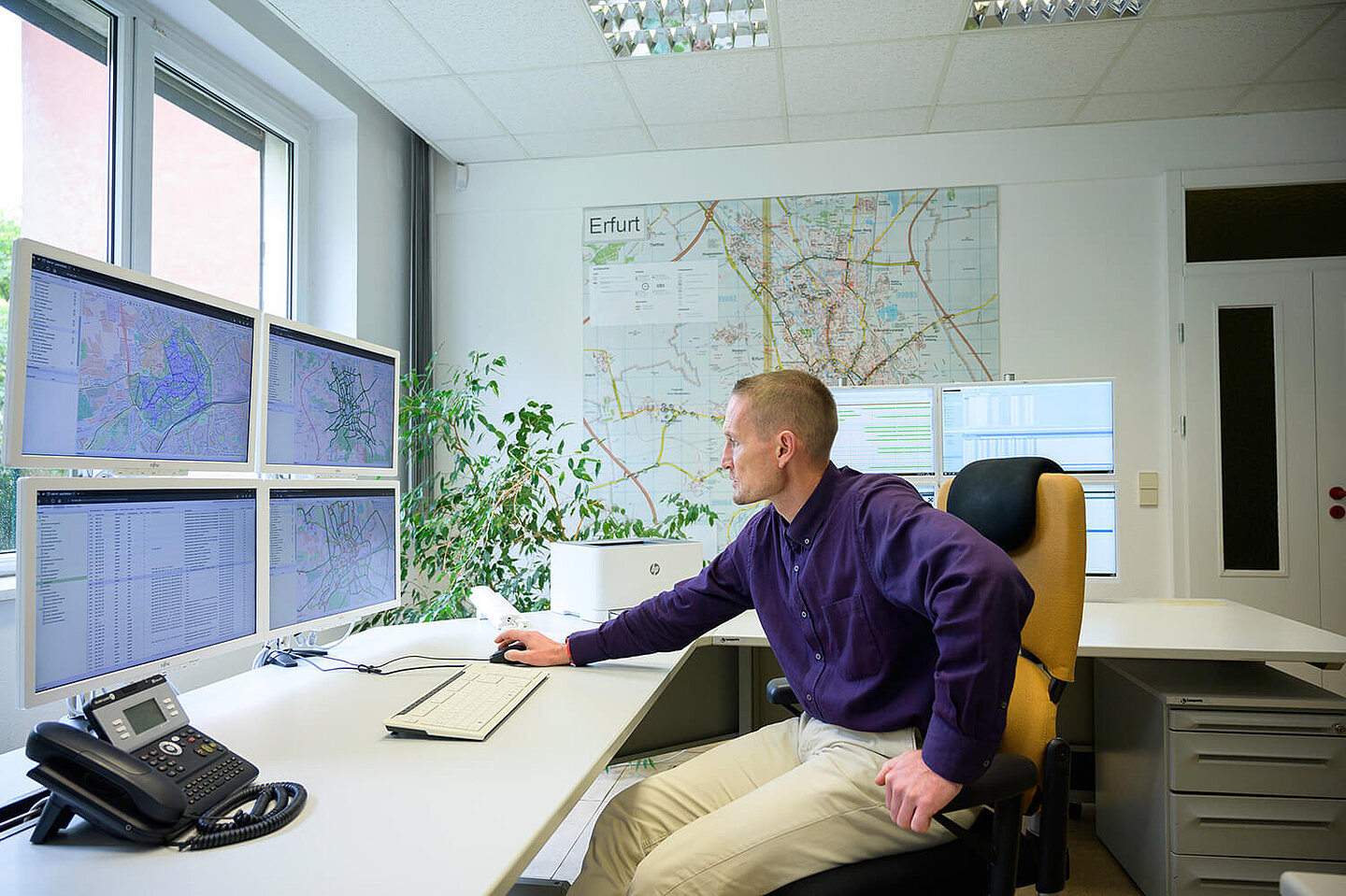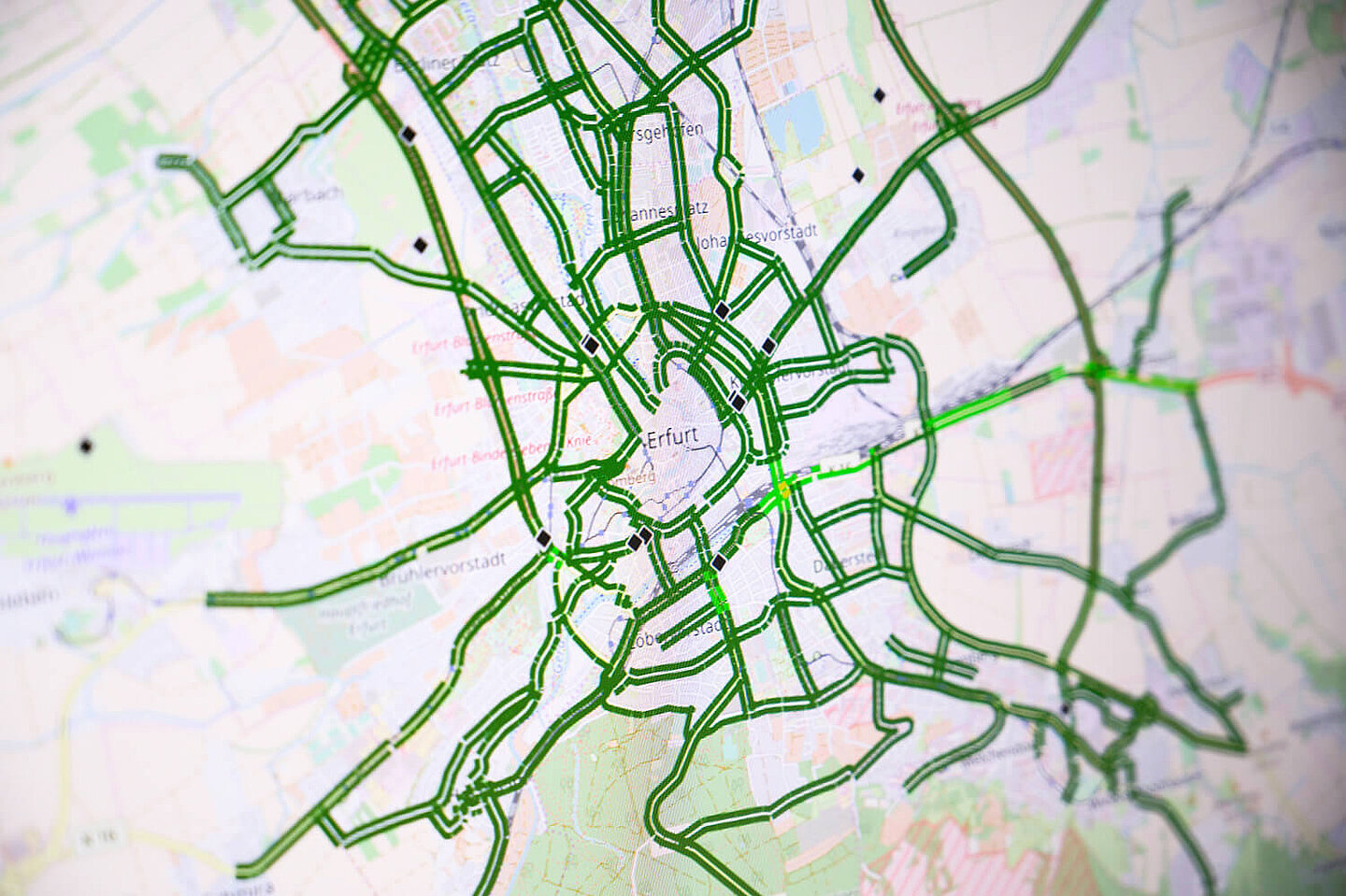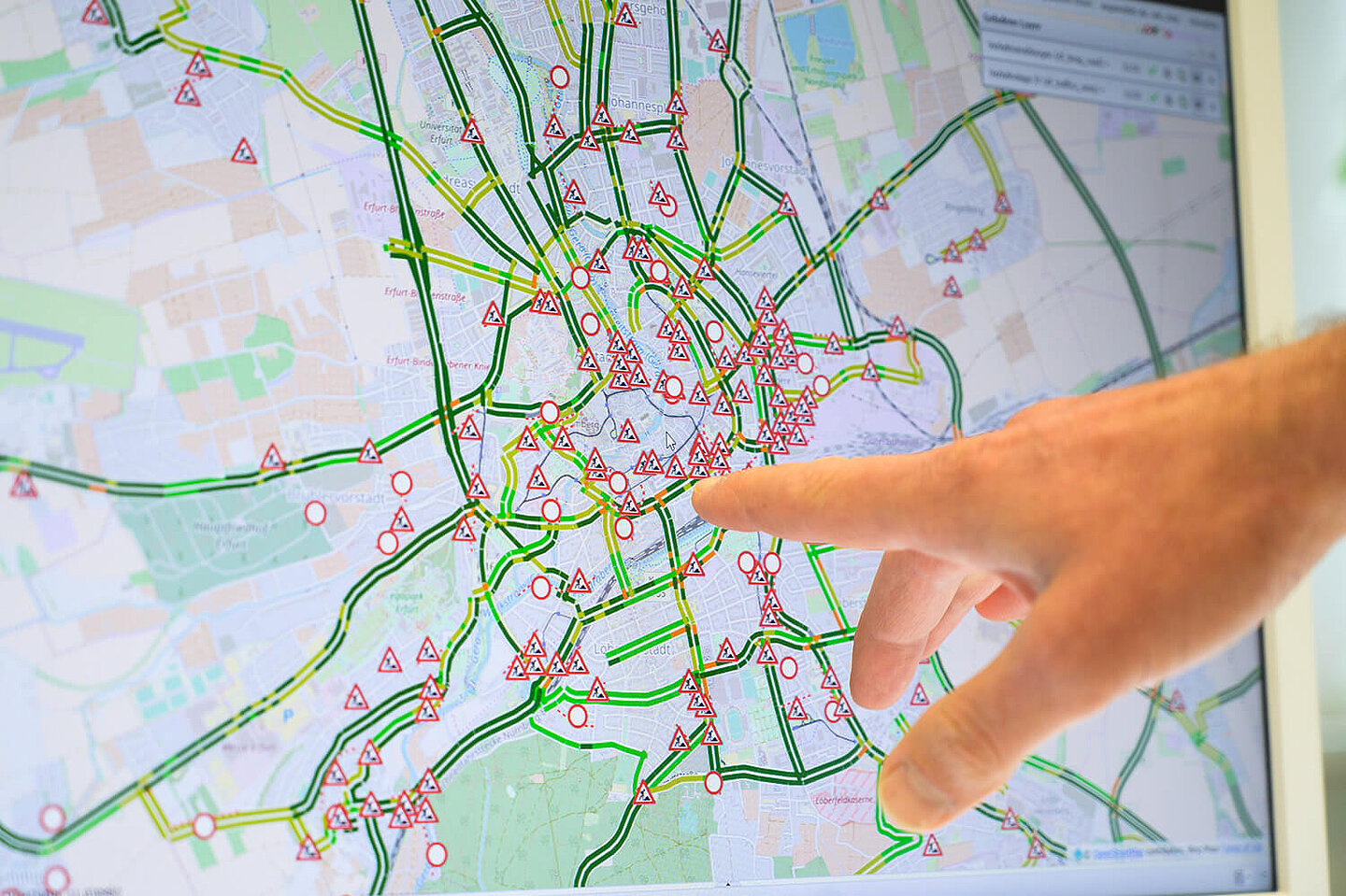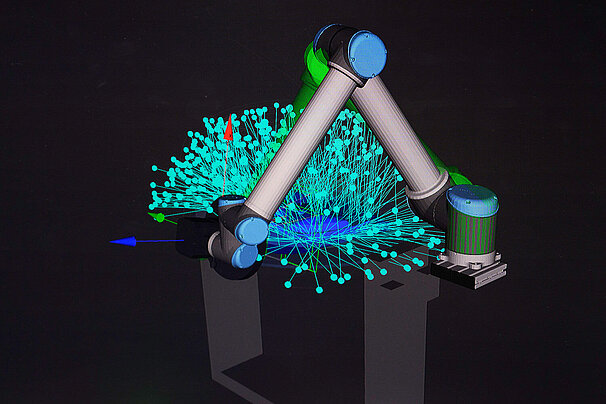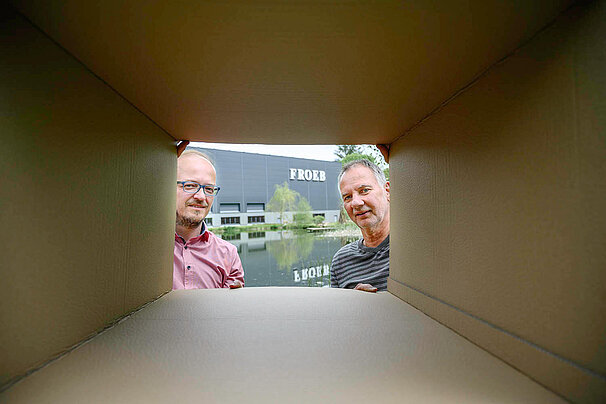Erfurt aims to significantly reduce traffic-related CO2 emissions with its "Environment-oriented Traffic Management Erfurt (UVE)" project and thus improve the city's air quality and, as a consequence, the locals' health.
The project focuses on implementing technical and organisational prerequisites for dynamic traffic management based on environmental aspects. Meteorological data, as well as data on the current traffic situation and the pollutant load in the air, form the data basis on which the project operates. Therefore, relevant data is constantly being collected in the entire city area via detectors and sensors.
Automated and continuous traffic monitoring is the decisive factor for the activation of environment-oriented traffic management measures. Traffic restrictions are recorded in real-time, and based on mathematical model calculations, a situation analysis for the entire city area is generated. As a result, the traffic can be specifically routed by light signal systems to reduce emission-intensive traffic conditions in the inner-city area and protect environmentally sensitive areas by directing motor traffic past them as soon as critical values are measured.
Beyond that, traffic information plays an essential role. Hence, traffic participants will receive information on the latest traffic situation and corresponding recommendations for action via various channels. These include modern information media and dynamic city information boards at radial city entrances. Primarily, however, the latest traffic information will be provided on the basis of the state capital Erfurt’s geoportal. Provision of data on the German “Mobility Data Marketplace (MDM)” is also being planned.
2017 UVM 0001
043 - Environmental friendliness and promotion of local transport infrastructure (including equipment and vehicles)
01.04.2017
31.12.2021
4.892.387,50
80 %
99084
Germany




